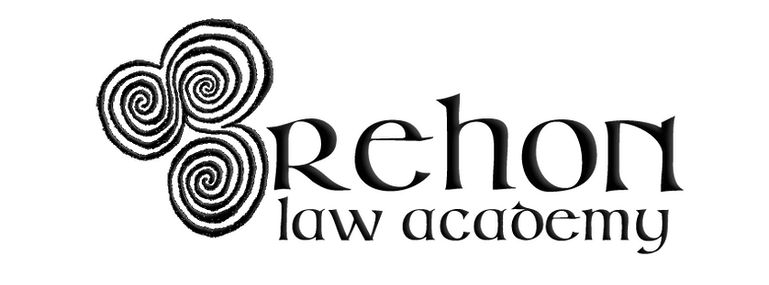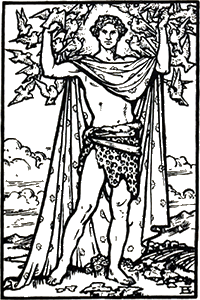The Beginning of the End? The Papal Bull of Pope Adrian IV
July 6, 2023
A defining moment in the erosion of the old Irish ways came from the Vatican in 1155 when the Catholic Pope Adrian IV (1100-59); the Vatican’s first and only English Pope, issued the Papal Bull Laudabiliter which sanctioned the invasion of Ireland by King Henry II, House of Plantagenet (1133-89).
This Bull bestowed upon Henry the title of Dominus Hiberniae, Lord of Ireland, and rendered the island his feudal possession.
As heir of Saint Peter; to whom Christ gave the keys to the Kingdom, it is believed that all spiritual authority rests with the Pope. In this role of Vicarious Christi the Pope stands in place of Jesus Christ who is the true inheritor of the Kingdom. But until He returns the prevailing Pope assumes the role for a temporary time. He rules from the Throne of Saint Peter, a seat of immense power worldy as much as spiritual. With the exclusive monopoly on the salvation of souls the Catholic Church becomes incredibly powerful across Christianised Europe.
Having supreme spiritual and temporal authority, the Vatican assumes ownership of Ireland and therefore the inherent authority to grant this ownership on licence to King Henry.
The Bull of Pope Adrian IV Empowering Henry II to Conquer Ireland. A.D. 1155
Bishop Adrian, servant of the servants of God, sends to his dearest son in Christ, the illustrious king of the English, greeting and apostolic benediction. Laudably and profitably enough thy magnificence thinks of extending thy glorious name on earth, and of heaping up rewards of eternal felicity in Heaven, inasmuch as, like a good catholic prince, thou dost endeavour to enlarge the bounds of the church, to declare the truth of the Christian faith to ignorant and barbarous nations, and to extirpate the plants of evil from the field of the Lord.
And, in order the better to perform this, thou dost ask the advice and favour of the apostolic see. In which work, the more lofty the counsel and the better the guidance by which thou dost proceed, so much more do we trust that, by God's help, thou wilt progress favourably in the same; for the reason that those things which have taken their rise from ardour of faith and love of religion are accustomed always to come to a good end and termination.
There is indeed no doubt, as thy Highness doth also acknowledge, that Ireland and all other islands which Christ the Sun of Righteousness has illumined, and which have received the doctrines of the Christian faith, belong to the jurisdiction of St. Peter and of the holy Roman Church. Wherefore, so much the more willingly do we grant to them that the right faith and the seed grateful to God may be planted in them, the more we perceive, by examining more strictly our conscience, that this will be required of us.
Thou hast signified to us, indeed, most beloved son in Christ, that thou dost desire to enter into the island of Ireland, in order to subject the people to the laws and to extirpate the vices that have there taken root, and that thou art willing to pay an annual pension to St. Peter of one penny from every house, and to preserve the rights of the churches in that land inviolate and entire.
We, therefore, seconding with the favour it deserves thy pious and laudable desire, and granting a benignant assent to thy petition, are well pleased that, for the enlargement of the bounds of the church. for the restraint of vice, for the correction of morals and the introduction of virtues, for the advancement of the Christian religion, thou shouldst enter that island, and carry out there the things that look to the honour of God and to its own salvation.
And may the people of that land receive thee with honour, and venerate thee as their master; provided always that the rights of the churches remain inviolate and entire, and saving to St. Peter and the holy Roman Church the annual pension of one penny from each house.
If, therefore, thou dost see fit to complete what thou hast conceived in thy mind, strive to imbue that people with good morals, and bring it to pass, as well through thyself as through those whom thou dost know from their faith, doctrine, and course of life to be fit for such a work, that the church may there be adorned, the Christian religion planted and made to grow, and the things which pertain to the honour of God and to salvation be so ordered that thou may'st merit to obtain an abundant and lasting reward from God, and on earth a name glorious throughout the ages.
Lyttleton's "Life of Henry II.," vol. v. p. 371.
Learn more about Ancient Ireland's Culture and Society Online
Save 20% Here!














